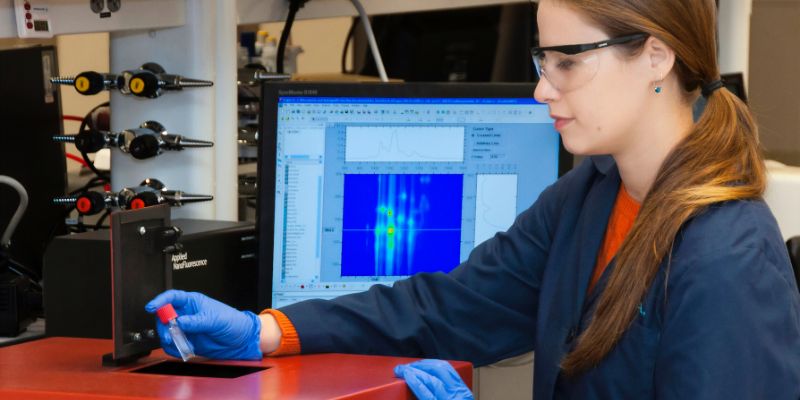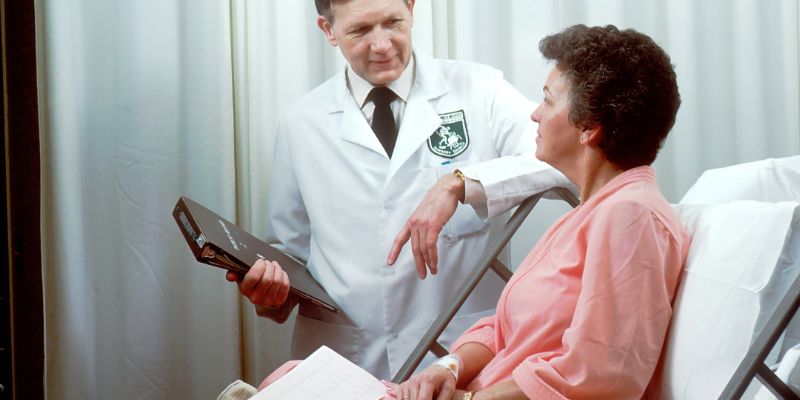This hormonal issue affects around 10% of women in the reproductive age group. In conjunction with the well recognized manifestations of polycystic ovary syndrome (PCOS), such as monthly irregularities and hormone imbalances, alopecia presents itself as a prevalent adverse outcome. This article explores the distressing phenomenon of alopecia in women diagnosed with Polycystic Ovary Syndrome (PCOS). The experience of hair loss may potentially lead to negative effects on an individual's self-esteem and overall well-being. Understanding the etiology and management strategies of this challenging aspect of polycystic ovary syndrome (PCOS) is crucial for those grappling with its effects. Join us as we explore the topic of hair loss associated with polycystic ovary syndrome (PCOS), including an examination of its etiology, methods of diagnosis, and available treatment modalities.
PCOS and Hair Loss: A Complex Relationship
Hormonal Havoc
One of the most well recognized manifestations of PCOS is the elevation of androgens, sometimes referred to as "male hormones." Androgens such as testosterone have the potential to disrupt the hair-growth cycle. Hair follicles are diminished in size and the lifespan of individual hairs is shortened by their binding action. Androgenic alopecia is a condition that is characterized by the occurrence of widespread baldness, receding hairlines, and total hair loss.
The Emotional Toll
Hair loss may potentially have adverse effects on a woman's emotional well-being, in addition to impacting her physical appearance. The significance of one's appearance extends beyond just physical attributes, including one's identity and self-perception. The occurrence of alopecia may have a significant emotional impact on those diagnosed with polycystic ovary syndrome (PCOS), particularly considering the multitude of symptoms they are currently contending with. The views of both their internal and exterior states are modified. The emotional toll of attempting to adapt to these changes encompasses genuine experiences of stress, grief, and loneliness.
The reversal of hair loss induced by polycystic ovarian syndrome (PCOS) necessitates the treatment of both the fundamental hormonal abnormalities and the psychological ramifications associated with this disorder. In the subsequent discussion, we will explore many approaches aimed at resolving this intricate issue and reinstating women's hair, self-worth, and assurance.
Types of Hair Loss in PCOS: Understanding the Differences
Androgenic Alopecia
While often linked to males, female-pattern baldness is a kind of hair loss that also affects women. The occurrence of androgenic alopecia in individuals withPCOS is attributed to elevated amounts of testosterone and other androgens. The phenomenon of widespread hair thinning over the scalp often manifests as a widening part and a decrease in hair density. This phenomenon may be particularly distressing for those with PCOS, since it contradicts conventional notions of femininity.
Telogen Effluvium
Telogen effluvium is distinguished by substantial hair loss as opposed to hair thinning, in contrast to androgenic alopecia. Individuals with anomalies and polycystic ovarian syndrome (PCOS) is a potential etiological factor. The act of brushing or washing the hair of a woman with telogen effluvium sometimes results in a noticeable escalation in hair shedding. While baldness is not often induced by this condition, it may lead to hair thinning.
It is crucial to acknowledge the several factors contributing to hair thinning in Polycystic Ovary Syndrome (PCOS) in order to develop efficacious strategies for its management and treatment. The following sections will elucidate pragmatic approaches for addressing each kind, with the overarching objective of empowering women via the restoration of agency over their hair.
Diagnosis and Evaluation: Navigating PCOS-Related Hair Loss
Adopting a systematic approach is crucial for identifying polycystic ovary syndrome (PCOS), a condition that may potentially lead to hair loss. It is essential to get medical attention if one is experiencing symptoms of illness. The assessment and management of this matter are significantly dependent on the proficiency of healthcare professionals.
Consultation Matters
It is advisable to seek medical consultation, namely from a healthcare professional with expertise in Polycystic Ovary Syndrome (PCOS), if experiencing hair loss. The full diagnosis of an individual's hair loss condition includes an assessment of their medical history, familial predisposition to hair loss, and a thorough physical examination. A blood test may be requested by a medical professional to evaluate hormone levels as a means of identifying hair loss associated with polycystic ovary syndrome (PCOS), since heightened androgen levels are often indicative of this condition.
Expert Guidance
Medical professionals have the expertise to discern various manifestations of alopecia, ascertain the root causes for each presentation, and provide appropriate therapeutic or interventional measures. Early diagnosis and effective care are crucial in optimizing control over hair loss associated with polycystic ovary syndrome (PCOS), mitigating its impact, and promoting hair regeneration.
Treatment Options: Reclaiming Your Hair and Confidence

The therapy of hair loss associated with polycystic ovary syndrome (PCOS) involves several approaches, including lifestyle modifications, pharmaceutical interventions, and the use of topical medicines. The crucial factor for achieving success is in rectifying the fundamental hormonal imbalance.
- Adopting a healthy lifestyle is considered a crucial determinant in the maintenance of optimal hair health. This entails participating in consistent physical exercise, consuming a balanced and nutrient-dense diet, and managing stress via good coping mechanisms. The maintenance of a healthy weight is of utmost importance as it has the potential to contribute to the regulation of hormones and promote the process of hair development.
- Pharmaceutical interventions, as suggested by medical professionals, may be used in managing hormonal dysregulation associated with polycystic ovary syndrome (PCOS). Anti-androgen medications such as spironolactone have the potential to alleviate the impact of androgens on hair follicles, resulting in a potential augmentation of hair growth. Oral contraceptives may also be used for the regulation of hormone levels.
- The use of an over-the-counter topical medication containing minoxidil has the potential to stimulate hair follicles and promote the development of new hair. Additionally, there exists a prescription-grade alternative.
- Given that polycystic ovary syndrome (PCOS) is distinguished by irregularities in hormonal levels, it is essential to effectively regulate these hormones as a fundamental aspect of treatment. Metformin is a pharmaceutical agent that has shown potential in the restoration of hormonal homeostasis and promotion of hair regrowth via its mechanism of action involving the reduction of insulin levels.
Psychological Impact and Coping: Navigating the Emotional Journey
Various strategies for managing the emotional repercussions include open communication with one's close relations about personal sentiments, participation in a support group, seeking professional assistance from a therapist, and cultivating self-compassion. Hair loss does not serve as an indicator of one's worth, hence individuals can feel free to style their hair in a manner that brings them personal satisfaction.
One should not hesitate to seek assistance when it is required. The provision of support from family, friends, and mental health professionals may prove to be of immense use when addressing the psychological ramifications associated with hair loss resulting from PCOS. It is important to acknowledge that there is available help along the journey.
Conclusion

Hair thinning due to PCOS is a difficult symptom to manage. It is crucial to learn about its origins and current treatment options. Women who suffer from PCOS may improve their hair health by adjusting their hormone levels, adopting healthier habits, and seeing a doctor. Remember that emotional and professional assistance play crucial roles in this process. Your hair, along with your self-esteem and general health, may grow back with time and effort.




